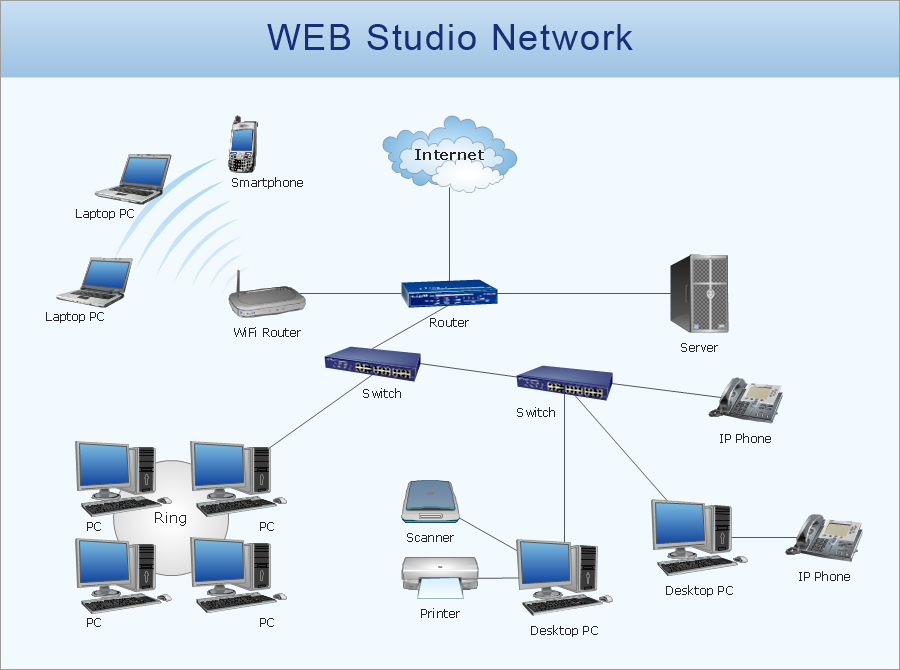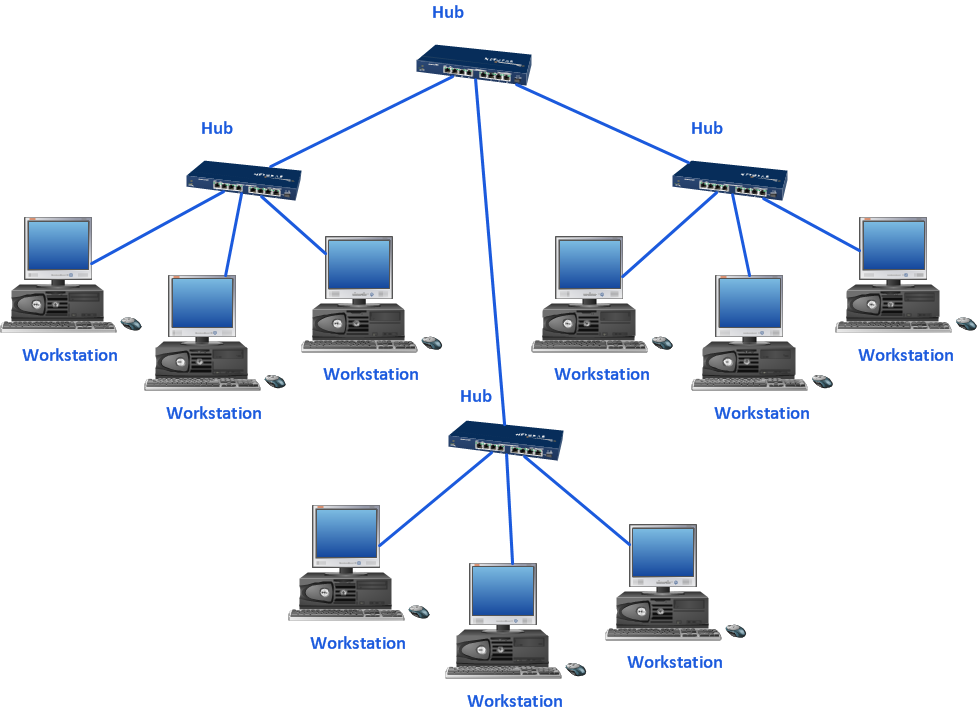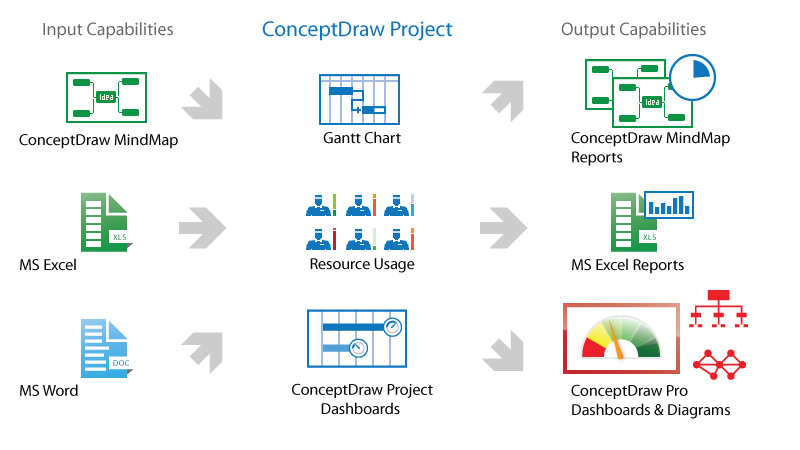 Fishbone Diagrams
Fishbone Diagrams
The Fishbone Diagrams solution extends ConceptDraw DIAGRAM software with the ability to easily draw the Fishbone Diagrams (Ishikawa Diagrams) to clearly see the cause and effect analysis and also problem solving. The vector graphic diagrams produced using this solution can be used in whitepapers, presentations, datasheets, posters, and published technical material.
 Fishbone Diagram
Fishbone Diagram
Fishbone Diagrams solution extends ConceptDraw DIAGRAM software with templates, samples and library of vector stencils for drawing the Ishikawa diagrams for cause and effect analysis.
Network Diagram Software
Network Diagrams are used to visually represent the network architecture, to illustrate the network structure, how the computers and other elements of the network are connected each other using a variety of network symbols, clipart and connection lines. They are incredibly useful on the stages of projecting computer network, of its construction and exploitation. Professionally designed and accurate Network Diagrams are equally convenient for computer engineers and users. You can construct them by hand on the paper or use special network diagramming software, such as ConceptDraw DIAGRAM. Having at disposal the powerful network diagramming tools of Computer Network Diagrams solution included to ConceptDraw Solution Park, you can succeed in drawing various types of Computer Network Diagrams, among them Network Communication Plans, Logical Network Diagrams, Network Topology Diagrams, LAN and WAN Diagrams, Network Floor Plan Layouts, Computer Network System Diagrams, Web-based Network Diagrams, Wireless Network Diagrams, Cisco Network Diagram, and others.
Mac Diagramming Software
ConceptDraw DIAGRAM software is the best Mac diagramming software for drawing any type of diagrams. Its rich set of samples and templates, and specific features to draw with great visual appeal on Mac OS X.Product Overview
ConceptDraw PROJECT is a vigorous tool for managing single or multiple projects. It lets you determine all essential elements involved into project, control schedules, resources and finances, and monitor projects' progress in most effective yet simple manner.
 PM Response
PM Response
The PM Response solution extends the functional abilities in project management for all three ConceptDraw products by helping to improve the response time to project changes, to plan on how to effectively respond on issues and events impacting the project. It supplies the project managers, team leaders, and all other project participants with wide abilities of iteration planning, creative collaboration, effective decision-making, discussions of the project layout approaches and solving the project challenges, lets them use mind mapping technique for iteration planning and applying the project changes, to represent the projects data as Mind Maps and use them to construct the clear plans, to convert project maps to project implementations, to use different kinds of Visual diagrams to solve the current project problems and to make correct decisions, to plan resources usage and to respond to changes in the project environment.
 Cross-Functional Flowcharts
Cross-Functional Flowcharts
Cross-functional flowcharts are powerful and useful tool for visualizing and analyzing complex business processes which requires involvement of multiple people, teams or even departments. They let clearly represent a sequence of the process steps, the order of operations, relationships between processes and responsible functional units (such as departments or positions).
- Fishbone Diagram Problem Solving | Using Fishbone Diagrams for ...
- Fishbone Diagram | Health Food | Fishbone Diagrams | Fishbone ...
- Using Fishbone Diagrams for Problem Solving | Fishbone Diagram ...
- Fishbone diagram - Bad coffee | Fishbone Diagrams | Fishbone ...
- Fishbone Diagrams | Fishbone Diagram | Health Food | Fish Rack ...
- How to Construct a Fishbone Diagram | Café Floor Plan Example ...
- Fishbone diagram - Bad coffee | Fishbone Diagrams | Fishbone ...
- Fishbone Diagram Food Industry
- Fishbone Diagram | Fishbone Diagrams | Improving Problem ...
- Fishbone Diagrams | Fishbone Diagram Problem Solving ...
- Fishbone Diagram | Fishbone Diagrams | ConceptDraw Solution ...
- Fishbone Diagrams | Fishbone Diagram Problem Solving ...
- Using Fishbone Diagrams for Problem Solving | How Do Fishbone ...
- Fault Tree Analysis Diagrams | Fishbone Diagram | Fishbone ...
- Fishbone Diagrams | Ishikawa Diagram Bad Food
- Fishbone Diagrams | Process Flowchart | Fishbone Diagram ...
- Fishbone Diagrams | Fishbone Diagram | TQM Diagram Tool ...
- Fishbone Diagrams | Example of DFD for Online Store (Data Flow ...
- Fishbone Diagram Example | Use a Fishbone Diagram to Attack ...
- Fishbone Diagrams | ConceptDraw Solution Park | Mathematics ...


